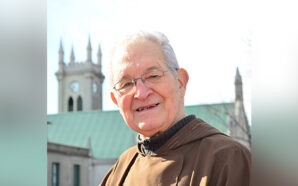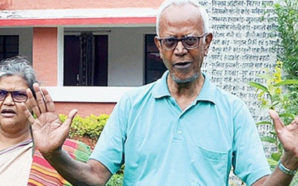This year, the Australian Embassy to the Holy See will join Australian Catholic Religious Against the Trafficking of Humans (ACRATH) for the launch of its 16 Days of Activism, which will focus on women migrant workers vulnerable to exploitation, starting on November 25 – the International Day for the Elimination of Violence Against Women.
ACRATH’s executive officer Christine Carolan is in Rome with Chiara Porro, Australian Ambassador to the Holy See for this important launch. “The social justice challenge is global; vulnerable workers are on the move right across the planet. So global solutions must be sought, and global justice-focused alliances must be built and strengthened,” Chiara and Christine said.
Christine said it was estimated that migrant workers were three times more likely to be in forced labour than non-migrant workers.
Chiara said she hoped that through the campaign, the faces of these vulnerable workers will become visible.
“More and more women are leaving their communities and their countries to find work to support themselves and their families. These women are often vulnerable and extremely at risk of exploitation and violence. Catholic entities, such as ACRATH, work in source countries to raise awareness and identify needs, as well as in receiving countries to support the migrant workers directly or the communities who host them. There is an urgent need to raise awareness of this issue and to reaffirm our support for the dignity of all human beings,” Chiara said.
ACRATH has developed a calendar of events, resources and stories, to mark days through the campaign, which ends on 10 December, Human Rights Day.
The campaign will be presented at an event hosted by women Ambassadors to the Holy See at Villa Bonaparte, the French Embassy to the Holy See, on 1 December 2023.
“Catholic entities are making an important contribution on the prevention of labour exploitation and violence against women in the migrant worker context. Pope Francis has been extremely vocal about the need to protect the most vulnerable, including those who are seeking better lives elsewhere. His calls to protect migrants, describing it ‘as a duty of civilization’, and to combat the ‘globalization of indifference’, have underlined the urgency of addressing this growing global challenge,” Chiara said.
Christine echoed her words saying: “In 2023 there are so many people on the move across our planet seeking work in another country and many are women. Other women stay behind with their children and elderly parents while their partners leave home to work overseas; all are attempting to make a living to support their families in any way they can.”
The Global Estimates of Modern Slavery report published in 2021 said that an estimated 50 million people were living in situations of modern slavery on any given day in 2021. The most vulnerable — women, children, and migrants — remain disproportionately affected. More than 12 million of all people in modern slavery are children, and women and girls account for over half of them (54%).
The report found that, “while labour migration has a largely positive effect on individuals, households, communities and societies, this finding demonstrates how migrants are particularly vulnerable to forced labour and trafficking, whether because of irregular or poorly governed migration, or unfair and unethical recruitment practices”.
Sr Jean Quinn DW, Executive Director of UNANIMA, shares her insights during the campaign, looking at the work being done to redress many of the injustices suffered by migrant women workers.
She said the majority of migrant domestic workers around the world are women and girls and they are extremely vulnerable to violence and abuse.
Many leave their homes because of poverty, conflict, climate-related disasters or violence, for the promise of a better life for them and their families. But many countries do not recognise domestic workers and so they are not protected by labour laws and at risk of labour rights abuses.
Join ACRATH daily to learn more, share resources, and raise awareness via our website: and social media channels: Facebook, Instagram, LinkedIn, X
With thanks to ACRATH.







